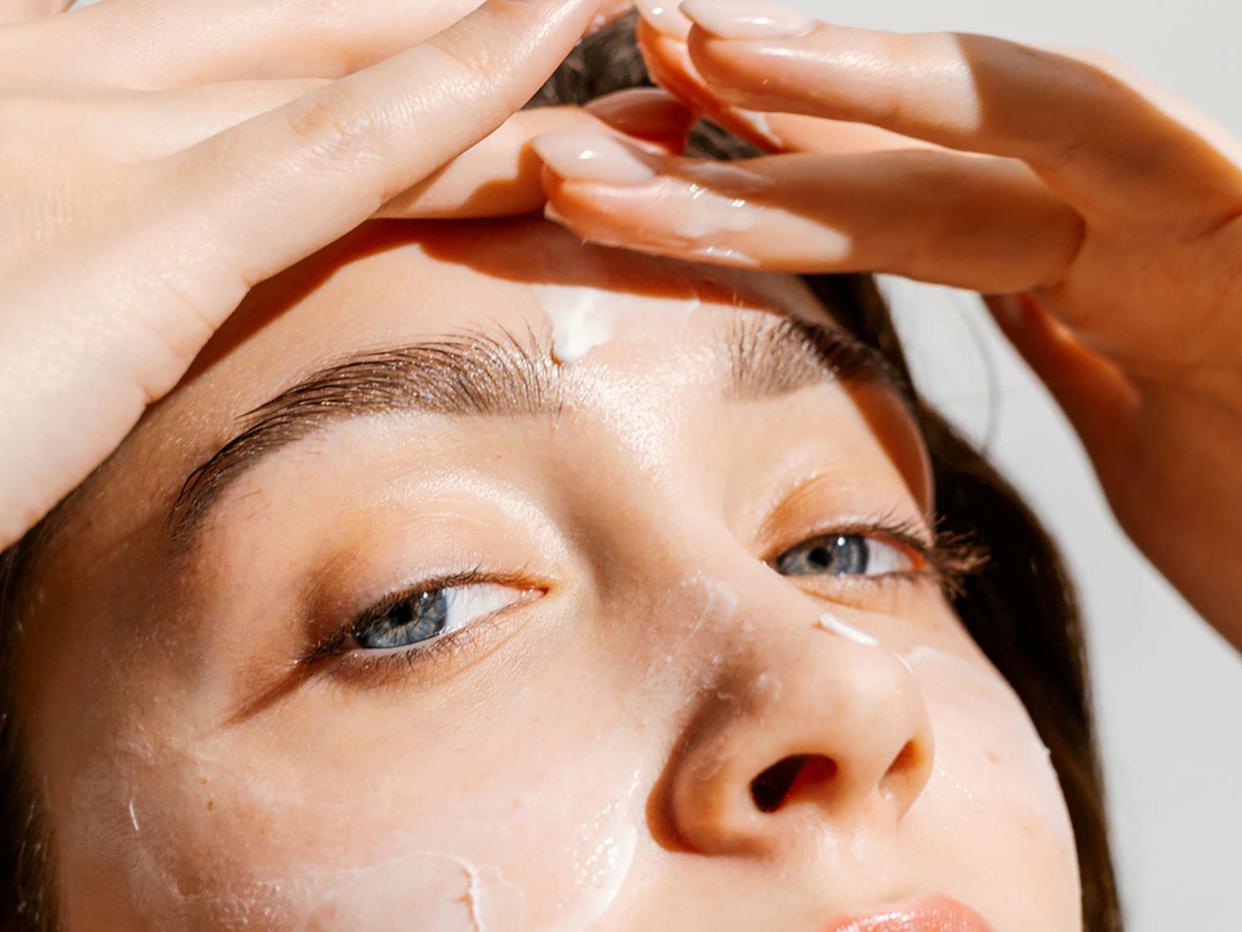Hydrating vs. Moisturizing: Dermatologists Break Down the Difference

Artem Podrez / Stocksy
Picture this: You wake up, and your skin feels painfully dry. Or is it dehydrated? It can be hard to tell, just like it can be hard to determine whether you need hydration or moisture. While these words may seem like synonyms, they're quite different in the world of skincare. It can all be very confusing. So we asked two board-certified dermatologists—Lindsey Zubritsky, MD, and Kenneth Mark, MD—to break it all down for us.
Keep reading for the definitive difference between hydrating and moisturizing (and to find out how to determine which your skin needs).
Meet Our Expert
Lindsey Zubritsky, MD, is a board-certified dermatologist specializing in skin cancer screenings, general medical dermatology, pediatric dermatology, and cosmetic dermatology.
Kenneth Mark, MD, is a board-certified dermatologist specializing in Mohs’ skin cancer surgery, plastic reconstructive surgery, and cosmetic procedures.
What Does Hydrating Your Skin Mean?
Skin hydration refers to increasing its water content. Think of hydrating your skin as akin to quenching your thirst with a refreshing gulp of water from your Stanley cup. To do so, Zubritsky recommends seeking ingredients that attract and retain moisture. "This typically affects the outermost layer of the skin and results in plumping of the skin," she explains.
What Does Moisturizing Your Skin Mean?
Zubritsky explains that moisturizing focuses on enhancing and fortifying the skin barrier, typically resulting in skin feeling soft and supple. It also aids in sealing moisture into the skin.
According to Mark, moisturizing and hydrating are not mutually exclusive terms. However, when we think of typical "moisturizers," we think of products that smooth or lubricate the skin.
Determining Which Your Skin Needs
According to Zubritsky, the key to determining the next step lies in determining whether your skin is dry or dehydrated. "If you have dehydrated skin, your skin lacks water and likely needs hydrating ingredients to replenish the water content," she says. "But if you have dry skin, your skin lacks oil, and likely needs a moisturizer to add moisture."
"With that being said, these are not always mutually exclusive and there is significant overlap, particularly when it comes to the symptoms you experience and the moisturizers you choose," she continues. Dry skin may have a rough texture, with flaking, scaling, redness, or itching. On the other hand, dehydrated skin may feel tight with a dull appearance and more visible fine lines and wrinkles.
To determine if you have dehydrated skin, she recommends the pinch test. "Gently pinch the skin of the cheeks or hands. If the skin is slow to return to normal, it's likely dehydrated."
How to Hydrate Your Skin
"When hydrating the skin, it's important to look for ingredients like humectants," Zubritsky advises. Humectants attract and draw in water (typically from the surrounding environment) and can be found in serums or moisturizers. Mark and Zubritsky emphasize that hyaluronic acid is one of the best humectants for creating hydrated, plumper-looking skin. "One of my favorite products for this is the Neutrogena Hydro Boost Water Cream ($20)," says Zubritsky. "It contains hyaluronic acid that [delivers] nine times more hydration compared to untreated skin. It really works to give skin a hydrated, plump, glowy, and dewy look."
"Another all-time favorite ingredient of mine is lactic acid, which, as a humectant, increases the skin's water content," adds Mark. Plus, for those with sensitive skin, lactic acid—an alpha hydroxy acid (AHA)—is also great for gently exfoliating without irritation.
How to Moisturize Your Skin
"When moisturizing your skin, look for ingredients that work to strengthen and support the skin barrier, such as emollients or occlusive ingredients," advises Zubritsky. She recommends ingredients like ceramides, dimethicone, shea butter, lanolin, or petrolatum. "One of my favorite moisturizers is Tatcha The Dewy Skin Cream Plumping & Hydrating Moisturizer ($72)," she tells us. "It's a rich, luxurious moisturizer containing dimethicone, squalane, and antioxidants that seal in moisture."
"In the world of ingredients and dermatology, vehicles matter," says Mark. "For severely dry, cracked skin, ointments with their occlusive physical barrier protection, such as Aquaphor Ointment ($18), are often required."
Read the original article on Byrdie.

